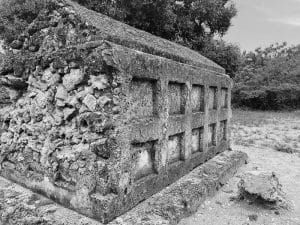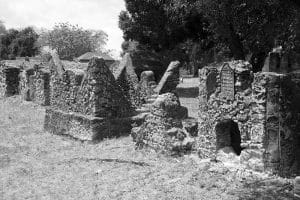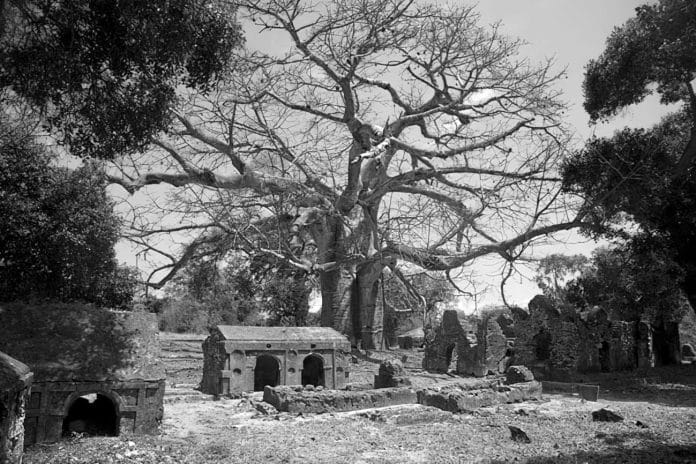Introduction to the Unguja Ukuu Archaeological Site Museum
Nestled along the picturesque coastline of Zanzibar, the Unguja Ukuu Archaeological Site Museum invites you on a captivating journey through the island’s rich and ancient history. This remarkable museum serves as a gateway to understanding the cultural and societal evolution of Zanzibar, offering visitors an immersive experience that transports them back in time.
As you step through the museum’s doors, you’ll be greeted by a captivating display of artifacts, each one a testament to the resilience and ingenuity of the people who once inhabited this island. From intricate pottery shards to meticulously carved stone tools, the museum’s carefully curated collection provides a glimpse into the daily lives and traditions of Zanzibar’s earliest inhabitants.
History and Significance of the Unguja Ukuu Archaeological Site
The Unguja Ukuu Archaeological Site, where the museum is situated, holds a profound significance in the history of Zanzibar. Dated back to the 7th century AD, this ancient settlement was once a thriving hub of trade and cultural exchange, serving as a crucial link between the African continent and the Indian Ocean world.
Excavations at the site have unearthed a wealth of archaeological treasures, shedding light on the diverse communities that called Unguja Ukuu home. The discovery of imported ceramics, glass beads, and other luxury goods suggests that the settlement was an integral part of a vast trading network, connecting Zanzibar to distant civilizations across the region.
Exploring the Artifacts and Exhibits at the Museum

As you venture through the museum’s meticulously curated exhibits, you’ll be captivated by the sheer breadth and depth of the artifacts on display. From intricate pottery shards and ornate jewelry to well-preserved architectural remains, each item tells a unique story about the people who once inhabited this vibrant settlement.
One of the museum’s standout exhibits is the collection of stone tools, which provide a glimpse into the technological advancements of the region’s early inhabitants. These tools, ranging from simple hand axes to more sophisticated cutting implements, offer insights into the daily lives and survival strategies of the Unguja Ukuu community.
Another highlight is the display of imported ceramics and glass beads, which showcase the extensive trade networks that connected Zanzibar to the wider Indian Ocean world. These luxury goods not only demonstrate the wealth and sophistication of the settlement but also highlight the cultural exchange and cross-pollination that occurred during this period.
The Archaeological Discoveries at Unguja Ukuu
The Unguja Ukuu Archaeological Site has been the subject of extensive excavations, revealing a wealth of information about the settlement’s history and development. Archaeologists have uncovered a diverse array of artifacts, including pottery, metalwork, and even the remains of architectural structures, providing a comprehensive understanding of the site’s evolution over time.
One of the most significant discoveries at the site is the presence of a well-preserved cemetery, which has yielded valuable insights into the burial practices and social structures of the Unguja Ukuu community. The careful analysis of the skeletal remains and associated grave goods has shed light on the health, diet, and social status of the site’s inhabitants.
Additionally, the discovery of a large public building, believed to have been a marketplace or administrative center, highlights the settlement’s economic and political significance within the broader regional context. This finding underscores the important role that Unguja Ukuu played in the regional trade networks and the sociopolitical dynamics of the time.
The Importance of Preserving and Protecting Archaeological Sites
The Unguja Ukuu Archaeological Site and its associated museum serve as a powerful reminder of the importance of preserving and protecting our cultural heritage. These sites are not merely relics of the past but living testaments to the resilience and ingenuity of human societies, offering invaluable insights into the evolution of civilizations.
By carefully excavating, documenting, and curating the artifacts found at Unguja Ukuu, the museum plays a crucial role in safeguarding the island’s archaeological treasures for future generations. Through educational programs, guided tours, and outreach initiatives, the museum actively engages the local community and visitors alike, fostering a deeper appreciation for the site’s significance and the need to protect it.
Moreover, the preservation of archaeological sites like Unguja Ukuu is essential for advancing our understanding of the past and informing our decisions about the future. The knowledge gained from these sites can inform urban planning, conservation efforts, and the development of sustainable tourism strategies, ultimately contributing to the long-term well-being of the local community and the preservation of Zanzibar’s cultural heritage.
Activities and Experiences at Unguja Ukuu Archaeological Site Museum
The Unguja Ukuu Archaeological Site Museum offers a range of engaging activities and experiences that allow visitors to immerse themselves in the site’s rich history and cultural significance. From guided tours led by knowledgeable experts to hands-on workshops and interactive exhibits, the museum provides a multifaceted approach to learning and exploration.
One of the museum’s most popular activities is the guided tour, where visitors can delve into the site’s archaeological discoveries and learn about the daily lives of the Unguja Ukuu community. These tours often include visits to the excavation sites, where visitors can witness ongoing research and conservation efforts firsthand.
The museum also hosts regular educational programs and workshops, such as pottery-making demonstrations and ancient tool-making workshops. These interactive experiences not only provide visitors with a deeper understanding of the site’s history but also foster a sense of connection to the traditions and skills of the past.
For those seeking a more immersive experience, the museum offers overnight stays at the on-site eco-lodge, allowing visitors to fully immerse themselves in the serene and tranquil atmosphere of the archaeological site.
How to Visit the Unguja Ukuu Archaeological Site Museum

The Unguja Ukuu Archaeological Site Museum is located on the northeastern coast of Zanzibar, just a short drive from the island’s capital, Stone Town. The museum is open daily, with guided tours and educational programs available throughout the year.
To plan your visit, it’s recommended to check the museum’s website or contact them directly for the most up-to-date information on opening hours, admission fees, and scheduled activities. Many tour operators in Zanzibar also include visits to the Unguja Ukuu Archaeological Site Museum as part of their itineraries, making it easy to incorporate into your travel plans.
When visiting the museum, be sure to wear comfortable walking shoes and bring along sun protection, as the site can be quite exposed to the elements. Additionally, it’s a good idea to bring a camera to capture the stunning coastal scenery and the fascinating artifacts on display.
Nearby Attractions and Things to Do in Zanzibar
The Unguja Ukuu Archaeological Site Museum is just one of the many captivating attractions that Zanzibar has to offer. As you explore the island, you’ll discover a rich tapestry of cultural, historical, and natural wonders that will leave you in awe.
Some of the must-visit destinations near the museum include the historic Stone Town, a UNESCO World Heritage Site known for its winding streets, vibrant markets, and stunning Swahili architecture. Another popular attraction is the Jozani Chwaka Bay National Park, home to the endemic and endangered Zanzibar red colobus monkey.
For beach lovers, Zanzibar’s stunning coastline offers an array of idyllic beaches, from the serene Nungwi Beach to the lively Paje Beach, where you can enjoy water sports, snorkeling, and breathtaking sunsets.
Supporting the Preservation Efforts at Unguja Ukuu Archaeological Site Museum
As you immerse yourself in the rich history and cultural significance of the Unguja Ukuu Archaeological Site, consider ways in which you can support the ongoing preservation and research efforts at the museum.
One of the most impactful ways to contribute is through financial donations or volunteering. The museum relies on the generosity of visitors and the local community to fund its conservation work, educational programs, and research initiatives. By donating to the museum, you can help ensure that the site’s invaluable artifacts and historical records are safeguarded for future generations.
Alternatively, you can volunteer your time and skills to assist the museum’s staff in various capacities, such as serving as a tour guide, participating in archaeological excavations, or helping with the cataloging and preservation of artifacts. This hands-on involvement not only supports the museum’s efforts but also provides you with a unique opportunity to deepen your understanding and appreciation of Zanzibar’s rich cultural heritage.
If you’re inspired by the Unguja Ukuu Archaeological Site Museum and the preservation of Zanzibar’s cultural heritage, consider making a donation or inquiring about volunteer opportunities. Your support can make a significant difference in ensuring that these invaluable archaeological treasures are protected and shared with the world. Visit the museum’s website or speak to a staff member to learn more about how you can get involved.
Conclusion
The Unguja Ukuu Archaeological Site Museum stands as a testament to the resilience and ingenuity of Zanzibar’s ancient inhabitants. Through its carefully curated exhibits and engaging educational programs, the museum invites visitors to embark on a captivating journey through the island’s rich history, fostering a deeper appreciation for the cultural heritage that continues to shape the fabric of this remarkable destination.
As you explore the museum’s artifacts and immerse yourself in the stories they tell, you’ll be inspired to join the ongoing efforts to preserve and protect these invaluable archaeological treasures. By supporting the museum’s initiatives, you can play a vital role in ensuring that the ancient roots of Zanzibar continue to be celebrated and shared with the world for generations to come.
For more articles related to Cultural Institutions, click here!

































